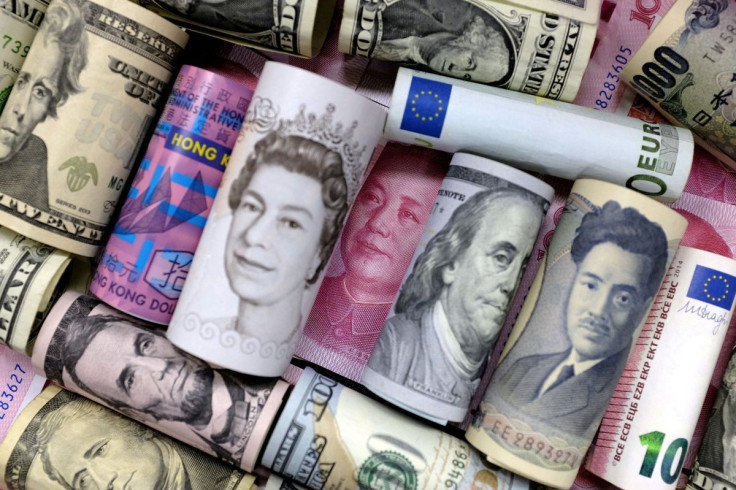Euro Skids Versus Safe-havens As Ukraine Tensions Ramp Up

The euro weakened and safe-haven currencies including the U.S. dollar were in demand on Thursday amid intensifying fears of an imminent full-scale Russian invasion of Ukraine.
The greenback, yen and Swiss franc all rose back toward multi-week highs to Europe's single currency, while the greenback hovered near a one-week peak versus major peers after U.S. Secretary of State Antony Blinken said he believes Russia will invade Ukraine within hours.
Riskier commodity-linked currencies also tumbled, succumbing to worsening risk sentiment after earlier in the week proving resilient due to high commodity prices.
Ukraine has declared a state of emergency and Moscow began evacuating its Kyiv embassy, while the West slapped Russia with sanctions.
The euro fell as much as 0.26% to $1.12750, the lowest level since Feb. 3.
It declined 0.29% to 129.640 yen, approaching Tuesday's low of 129.360, its weakest since Feb. 3. It slipped 0.22% to 1.03550 franc, closing in on Tuesday's trough at 1.03405, which was the lowest since Jan. 24.
The U.S. dollar index - which gauges the currency against six major peers, including the euro, yen and Swiss franc - rose as much as 0.19% to 96.372 for the first time since Feb. 14.
"We're definitely seeing a knee-jerk reaction to Blinken's comments," with haven currencies in demand and the euro and commodity currencies sold off, said Joseph Capurso, a strategist at Commonwealth Bank of Australia.
"The situation certainly looks like it's going to get worse before it gets better."
The Australian dollar dropped 0.33% to $0.72075 and the New Zealand dollar slid 0.41% to $0.67475.
Sterling lost 0.08% to $1.35340.
© Copyright Thomson Reuters {{Year}}. All rights reserved.





















